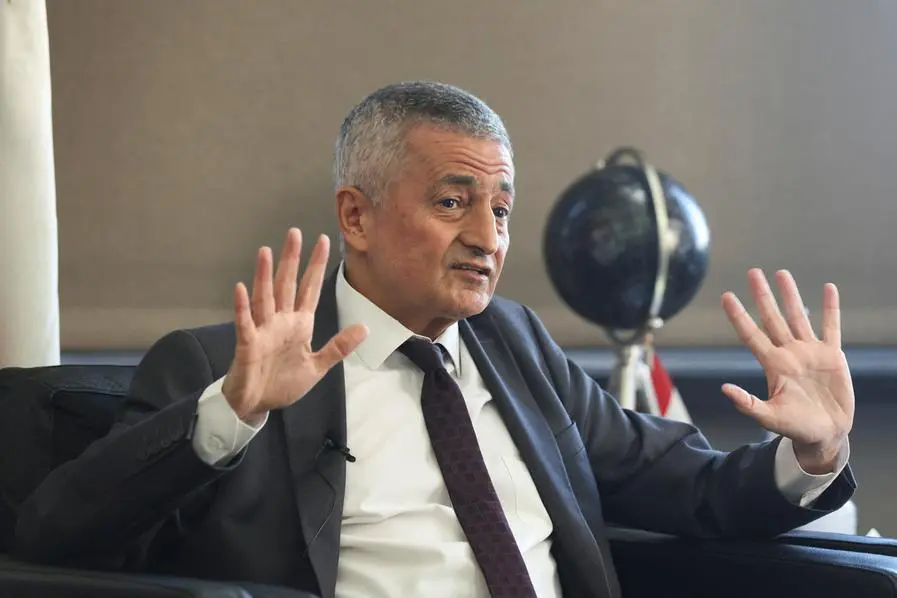PHOTO
BEIRUT, Sept 28 (Reuters) - Lebanon plans to slash its official exchange rate from the end of October, replacing the 1,507 per dollar rate adopted 25 years ago with a rate of 15,000 in a step towards unifying numerous exchange rates, the finance minister told Reuters.
The pound has plunged by more than 95% from the official rate since Lebanon fell into financial crisis three years ago, with dollars currently changing hands at around 38,000 on a parallel market.
"The goal is for there to be a unification of the exchange rates in Lebanon," Finance Minister Youssef Khalil said, calling the decision a "fundamental step" in that direction.
"Today, Lebanon has entered a new phase and is no longer using an official U.S. dollar exchange that makes no sense ... Now we have one that is useful, based on which you can steer the economy toward a better situation," he said.
The decision - which Khalil said was reached via an agreement with central bank governor Riad Salameh - marks a milestone in the meltdown that has plunged swathes of the population into poverty in the worst crisis since the 1975-90 civil war.
Ruling politicians have so far taken scarcely any action towards tackling the crisis.
Unifying the numerous exchange rates operating in the country is one of several conditions set by the IMF for Lebanon to secure a badly needed aid package.
Khalil noted that unification of the exchange rates was an IMF demand, but added it was also something that must happen regardless.
He said money coming into the country was avoiding the banking sector due to distortions in the exchange rate and a lack of confidence, which he said he hoped would be assuaged by the unification of rates.
"We have taken this month to explain to everyone carefully what is happening," he said.
On Monday, the parliament approved a state budget that applied the 15,000 rate to customs taxes - a step aimed at boosting state revenues. Khalil said this had paved the way for the decision he announced on Wednesday.
RECOVERY PLAN
Lebanon's crisis was caused by decades of profligate spending by a state riddled with corruption and waste, together with unsustainable financial policies.
Depositors have been largely frozen out of dollar savings in the paralysed banking system. Ruling politicians have yet to finalise and execute a financial recovery plan that would address some $72 billion of losses in the financial system.
The Lebanese government reached a draft funding agreement with the IMF in April, contingent on Beirut implementing several reforms. But the IMF said last week Lebanon's progress in implementing reforms remained very slow.
Khalil said an update to the financial recovery plan drafted by the government was being discussed in parliament.
"It needs time," he said, adding that Wednesday's decision would reflect positively on the plan "because it is helping economic activity and increases revenues for the state".
(Reporting by Laila Bassam, Timour Azhari and Tom Perry; Editing by Alison Williams and Hugh Lawson)



















